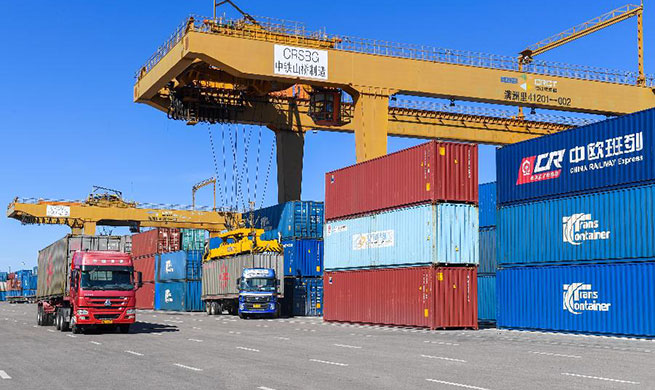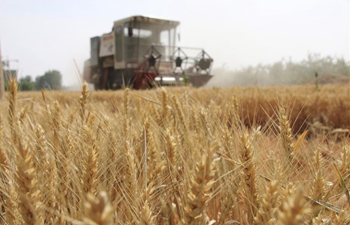WASHINGTON, June 4 (Xinhua) -- The global economic outlook is shadowed by "substantial challenges," World Bank President David Malpass said on Tuesday, highlighting rising trade barriers as one of the major downside risks to growth.
In a teleconference on the latest Global Economic Prospects report, Malpass told reporters that global growth has weakened since the January issue of the report, and "momentum remains fragile."
"There's been a tumble in business confidence, a deepening slowdown in global trade, and sluggish investment in emerging and developing economies," said Malpass, calling the situation "worrisome."
In the newly released semi-annual report, the World Bank lowered its global growth forecast for 2019 to 2.6 percent, 0.3 percentage point lower than the previous estimate in January. Global growth is projected to inch up to 2.7 percent in 2020.
Global trade growth in 2019, in particular, was revised down a full percentage point, to 2.6 percent, the weakest since the global financial crisis, the report said.
"The global economic outlook, in both the near- and long-term, is confronting substantial challenges," Malpass said. "Downside risks include rising trade barriers, a buildup of government debt, and deepening slowdowns in major economies."
"If these trade tensions escalate and we see much higher tariffs put on a very large segment of global trade...it is very likely that we will see a deeper slowdown," Ayhan Kose, director of the prospects group at the World Bank, said in the teleconference.
"The slowdown will take place in major economies, will have a significant spillover through trade channels, through confidence channels, through commodity markets," Kose said, noting that the current 2.7 percent forecast for global growth in 2020 could be cut by a full percentage point to 1.7 percent if trade tensions continue to escalate.
According to the report, growth among emerging market and developing economies is projected to fall to a four-year low of 4 percent in 2019, while growth among advanced economies is anticipated to slow to 1.7 percent.













